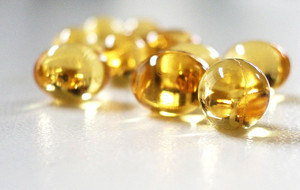Last week, I saw a headline that caught my attention. It was “Vitamin overuse tied to men’s cancer risk.” The article talked about how research proved that men who “took too many” multivitamins had higher risks of dying from prostate cancer.
Rather than address the specifics of the study itself, and all the nutritional/herbal approaches to cancer, I am sharing this as an example of what I encounter all the time in my practice. And that is, “I heard XYZ is linked to ABC disease” or “I read that ABC herb is dangerous.”
Current statistics show that people now spend more money on alternative health practitioners out of pocket, than they do on visits to regular doctors. The reason? They are getting results. Their family members are experiencing results. It’s progressed from the distant “I heard of someone who felt better after using natural alternatives” to having a personal experience with natural methods, whether it be themselves, a family member or close friend.
But then listen to any news broadcast, or read any newspaper, and it does not seem to correspond.
There, they hear a natural remedy is dangerous, or that it is unproven, etc.
It is no wonder they are confused!
Because conscious health is about being present, and deliberate, with what you choose to do, here are my suggestions for those of you wishing to practice more conscious health.
Dig deeper than the headline
I am always amazed at how many people read a headline, and then take it at face value. The same goes for research abstracts (the one paragraph “summary” of the study often shown at the top of any research report). One of my mentors (who happens to be a person who actually reads and dissects every word of clinical research studies) shared with me more often than not, if you actually read the study, the conclusion is far different than what the abstract even states.
Even if you are smart enough to click through to read the research, it takes a well-trained scientist and researcher to be able to determine if the research was conducted fairly, or if the method used was an accurate way to test what was being tested, or if there were any assumptions made in the analysis of the data, and so forth.
Ask questions
In the fall of 2011, this study came out and I was asked a lot of questions about it. If you read through this article, you come away with the idea that vitamin E increases prostate cancer, and is especially bad if you have advanced stages of it. Because the amount studied in the report was only 400ius of vitamin E a day (which is the amount in most multivitamins and not a therapeutic dose) it understandably panicked many people.
When I first heard of the study (without even reading it) my first question was “What form of vitamin E did they use in the study?”
Turns out, when I looked into it further, they used a petrochemically-derived form of dl-alpha tocopherol, which is known to have toxic effects. (and the more toxic your body is, the higher the cancer incidence of course)
As with many nutritional supplements, the purity and the form make all the difference. The overwhelming majority of vitamin E sold is a synthetic form of vitamin E. Not only is it synthetic, but it is only contains one of the 4 tocopherols in naturally occurring vitamin E.
When you mess with Mother Nature, the results in the human body are usually not good. Isolating one of the tocopherols from the others, eliminate the synergistic effects of the way vitamin E operates in nature. (When purchasing a vitamin E supplement, look for one that is a mixed tocopherol (d-alpha, beta, gamma, and delta) and is designated with “d-“ not “dl”)
Unfortunately, the average person would have no idea to even ask the question (which is why I am passionately sharing this information here).
The same goes for studies done on red meat. My question is, “Were they using organic, grass fed beef in the study or were they using hormone-laden, antibiotic-administered, corn-fed beef?” They are not interchangeable, and their effects on the human body are vastly different.
Those are only two examples of such research specifics, and the list goes on and on.
Consider the big picture
Understand that the media is not motivated to report on natural remedies, unless it is deemed “unsafe.” Occasionally, word will get out about a specific nutrient, which causes a consumer frenzy, and then not long after that, the finding is “disproven” or negated in some way. St. John’s Wort and its use with depression is one example from the mid 1990’s. Aside from the reality that bad news is what “sells” and gets people’s attention, it does not take very long watching television, or flipping through a magazine, to see that the overwhelming majority of advertisements stem from one particular industry. I wonder how quickly a magazine would stay in business if it were to report the literally millions of stories of people using natural methods to address health concerns?
I’ll leave it at that.
So what is the best way to deal with the misinformation that we are bombarded with?
First, recognize it for what it is, and know that information reported in the media is not law and the ultimate authority on such information.
And secondly, if you want to do something for yourself in this arena, find an experienced, qualified natural health practitioner who can help you sort through the myths, the reality, and the vast array of unknowns. Their training and personal experience with clients are more relevant to you, and your health, than any eye-catching headline.

Leave a Reply